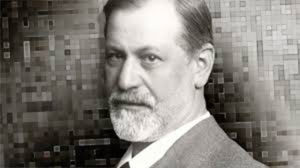Alliance de travail et relation d’objet
Résumé
Cet article est une réponse à celui de J. Godfrind. Cette dernière suggère que l'alliance de travail est liée aux composantes narcissiques de la relation transférentielle. Mon avis est différent. Grâce à trois courtes illustrations cliniques, je tente de démontrer que les cas limites et ceux ayant de fragiles assises narcissiques n'instaurent pas vraiment une alliance thérapeutique. L'établissement d'une telle alliance nécessite un Moi suffisamment fort et autonome ainsi que la capacité de mettre en place des relations objectales. Chez les patients dont il est question, il existe une idéalisation extrême, une confiance absolue et aveugle en l'analyste et l'analyse. Si le patient n'est pas capable de se mouvoir dans l'espace transitionnel, il ne peut établir une alliance de travail.
Samenvatting
Dit kleine artikel is een antwoord op de text van J. Godfrind, die het werkverbond uitlegt vanaf eigenschappen behorende tot de narcistische lagen van de overdrachtsrelatie. Il ben daarmee niet helemaal in overeenstemming. Met de hulp van drie korte klinische vignetten, probeer ik te tonen dat «border-line» patiënten en zwaar narcistisch beladen patiënten geen echt werkverbond kunnen inrichten. Bij hen bestaat een overdreven idealisatieproces, een blind en absoluut vertrouwen in de analyse en de analyst. Het therapeutisch verbond kan alleen bestaan bij persoonlijkheden die een echte objektsrelatie aan kunnen en die een sterk en autonoom ik bezitten, en toegang hebben tot de transitionnele fenomenen.
Summary
This is intended to be an answer to the paper of J. Godfrind. She suggests that the working alliance is connected with narcissistic properties of the transference relationship. My opinion is quite différent. By means of three clinical vignettes, I try to demonstrate that border-line patients and cases with a brittle narcissistic base do not really create a working alliance. To establish this, one needs to have a sufficiently strong and autonomous Ego and the capacity to set up object-relations. In the patients mentioned, there exists an extreme idealization, an absolute and blind trust in the analyst and in analysis. If the patient is not able to manipulate the transitional phenomena, he will not be able to establish a working alliance.





